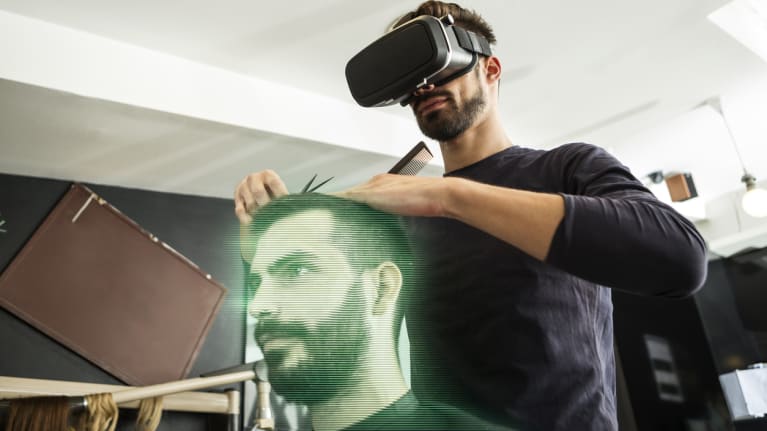:

Skills development for employees who work nontraditional shifts—weekends, at night—or in "deskless" jobs such as retail, health care or transportation can be a challenge, but some employers are finding creative ways to provide these employees with training and development opportunities.
"For the deskless worker, we're starting to see [the use of] simulators and role playing more and more … [to provide] a real-world experience but in a safe environment for them to improve," said Casey Welch, chief executive officer of Tallo.
The Charleston, S.C.-based online platform works with students to design a career pathway and with educators looking to recruit top talent to their schools and develop a talent pipeline for employers.
Real-world experience may include showing a day in the life of someone in a given career path, which can be eye-opening even for those already working in that industry.
[SHRM members-only toolkit: Developing Employees]
Keep these considerations in mind when planning skills development for workers with nontraditional schedules:
Make sure you allocate time for training.
"It's nice to tell people to get training," Welch pointed out, "[but] if they're not going to allocate that time [to do so], … it's not going to get done." On-the-job training and job simulators that use virtual reality or gamification are some approaches to consider.
Also, employers can help motivate employees to pursue training by making it clear how the training can further their careers, perhaps in other areas of the organization.
A Randstad report released earlier this year found that 43 percent of workers who responded to the global survey said they learned new skills to advance in their current role and to stay relevant; 30 percent said they wanted to advance internally rather than land a job elsewhere.
Welch said he is seeing job simulations used to illustrate the skills necessary to move into various areas of the company, such as from accounting into a more technical role like IT.
Make training accessible to all employees.
This can be especially important when training involves compliance and health and safety issues.
Employees working nights or weekends, though, are tired of having to deal with training after completing their shift and don't relish attending training classes and workshops during the day, said Dimitris Tsingos, co-founder and president of Epignosis, a learning solutions provider based in Athens, Greece.
"Learning is all about energy," he said. "The organization must account for that and provide for flexibility" in how training is delivered. "It has to be refreshing, interesting and not too long," he added. There can be no worse situation having to deal with a two-hour boring video after a night [shift]."
Consider how training is delivered.
Training that is more fun would improve the experience, according to 55 percent of 600 respondents surveyed in Australia, Canada, the U.K. and the U.S. Talentcards, a subsidiary of Epignosis, conducted the survey. Gamification of training, perhaps involving a leaderboard and the opportunity to win "badges," might be one approach.
Other findings from Talentcards:
- 80 percent of respondents prefer short training sessions that occur at regular intervals versus long, one-time training sessions.
- 74 percent said they are comfortable using their personal mobile devices to complete training.
- 41 percent would prefer training they could complete at their own pace.